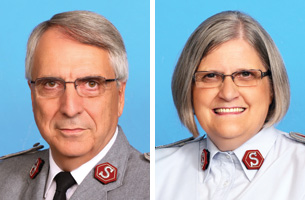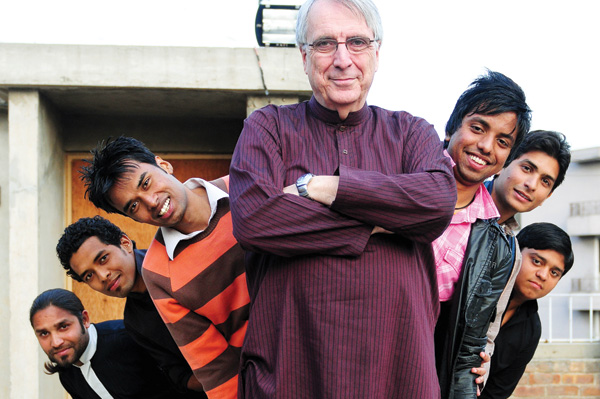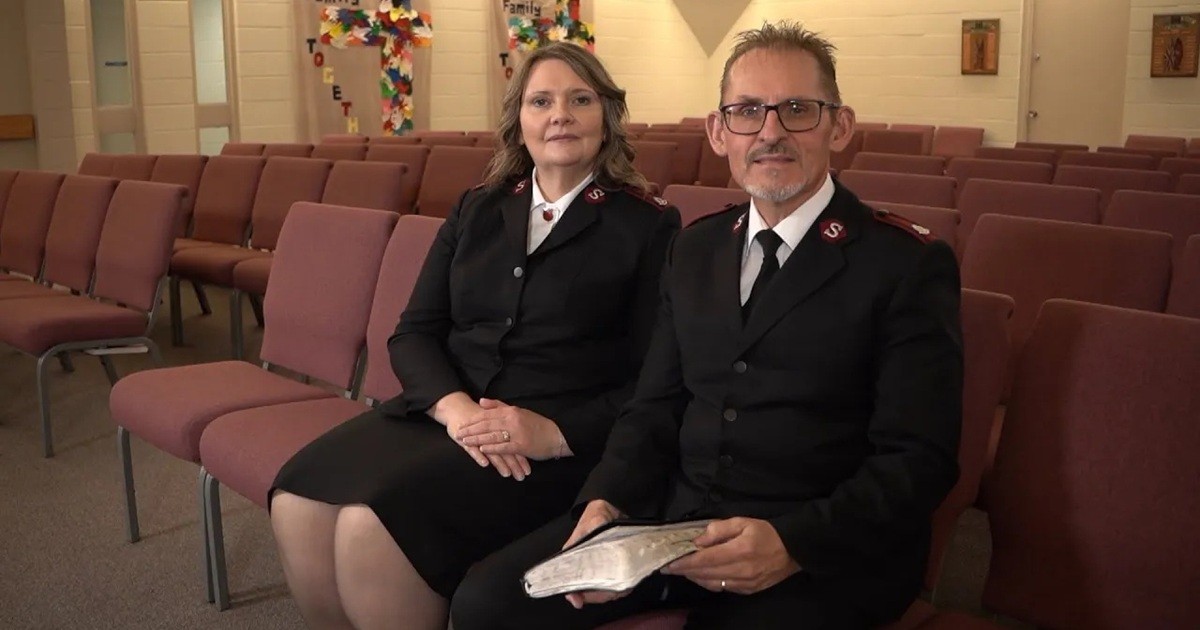 Colonels Robert and Marguerite Ward have spent more than half of their 41 years of service overseas. Thirty years ago, they received their first overseas appointment to Pakistan, so it is fitting that they have returned to the same country as territorial leaders. Pakistan remains a key strategic country bordering on India, China, Afghanistan and Iran. Western media feature news from Pakistan almost daily, often related to terrorism, natural or man-made disasters or the impact of religious extremism.
Colonels Robert and Marguerite Ward have spent more than half of their 41 years of service overseas. Thirty years ago, they received their first overseas appointment to Pakistan, so it is fitting that they have returned to the same country as territorial leaders. Pakistan remains a key strategic country bordering on India, China, Afghanistan and Iran. Western media feature news from Pakistan almost daily, often related to terrorism, natural or man-made disasters or the impact of religious extremism.
An area in which the Wards have seen little difference is the role of women, but The Salvation Army is changing that. “I'm trying to encourage women to take on a leadership role and celebrate our heritage in the Army, because I think we can be a strong, positive force for women,” says Colonel Marguerite. Despite persistent cultural beliefs that women cannot take on positions of authority, female soldiers and officers of the territory—led by an active team of divisional directors of women's ministries—are not only becoming leaders, but effecting real change in their communities.

“The Lord gave a vision to one medical fellowship member, and now she's got a small free clinic running in her neighbourhood, seeing 30 to 40 people,” continues Colonel Marguerite. “They are many kilometres from any health care, so it's a huge service to them to be able to get their diabetes and their blood pressure checked, and that's just Salvation Army women doing this for their communities.”
It's important to the Wards, as leaders in a developing country, that they encourage and support development among Pakistani Salvationists. “It's hard to be a leader in the developing world because it's easier to do things yourself than to teach others how,” says Colonel Marguerite. “But it's about valuing people. If you don't develop them so that they can take their own leadership positions, what does that say?”

This effort to encourage leadership within Pakistan is complicated by the difficulties of working within a culture that sometimes goes against The Salvation Army's beliefs. “You could come in with a set of rigid principles and actually not help The Salvation Army or the Kingdom,” says Colonel Robert. “So, to what extent do you soften those rigid corners in order to at least function?”
Other more personal challenges include the very real differences between Christian life in Canada and in Pakistan. “We struggled for a while physically because we live and work on a compound and we weren't getting any exercise,” says Colonel Marguerite. “It can be a challenge to live just going up and down the stairs in the same place with the same people all the time. But now we're walking in a park very early in the morning.”
It is daunting to enter into a leadership role in a country with so many challenges, particularly considering the tragic murder of Colonel Bo Brekke, the former territorial commander, in 2007. The Wards acknowledge those difficulties. “You have a whole group of people who felt the shame of what happened, while at the same time experienced a serious leadership vacuum when the overseas department heads all left the country as a result,” says Colonel Marguerite. “We were like an army ready to march but we had really sharp stones in our shoes.”
“We're trying to lift up the territory, but at the same time as lifting it up, we're trying to also move it forward,” explains Colonel Robert.
Despite these difficulties, the Wards have been reassured by God's constant presence. “I think there have been a lot of confirmations,” says Colonel Robert. “Every time we've been appointed somewhere, it's been because our previous appointments have prepared us. So we go there and we find out God is going ahead preparing things for us, that we're never in the middle of the jungle. We're actually not the ones that have to cut down all the weeds and the branches to try to work a pathway through. There's a pathway already there, and really all we have to do is find out where that pathway is and follow it.”










God Bless
Beev